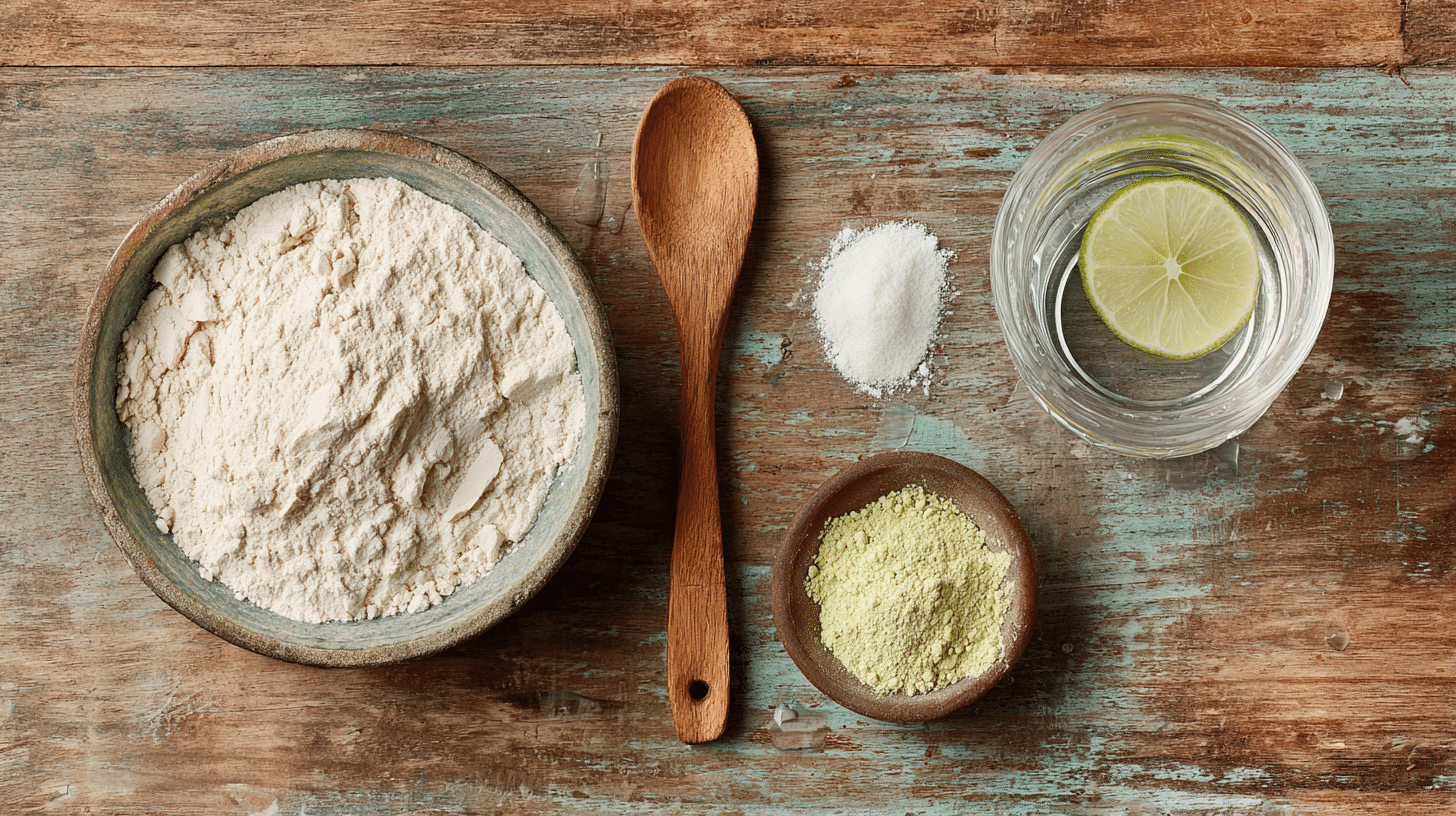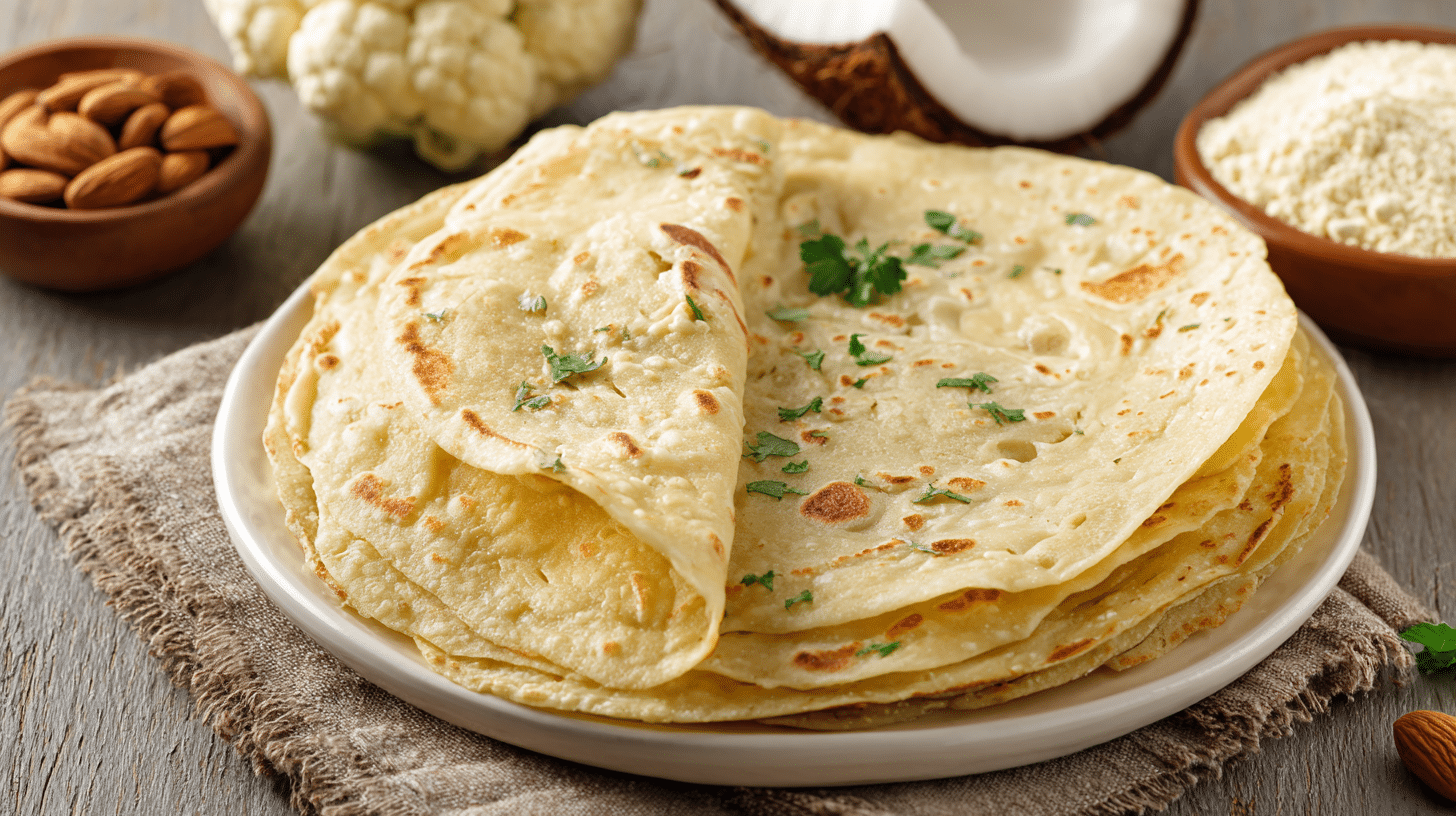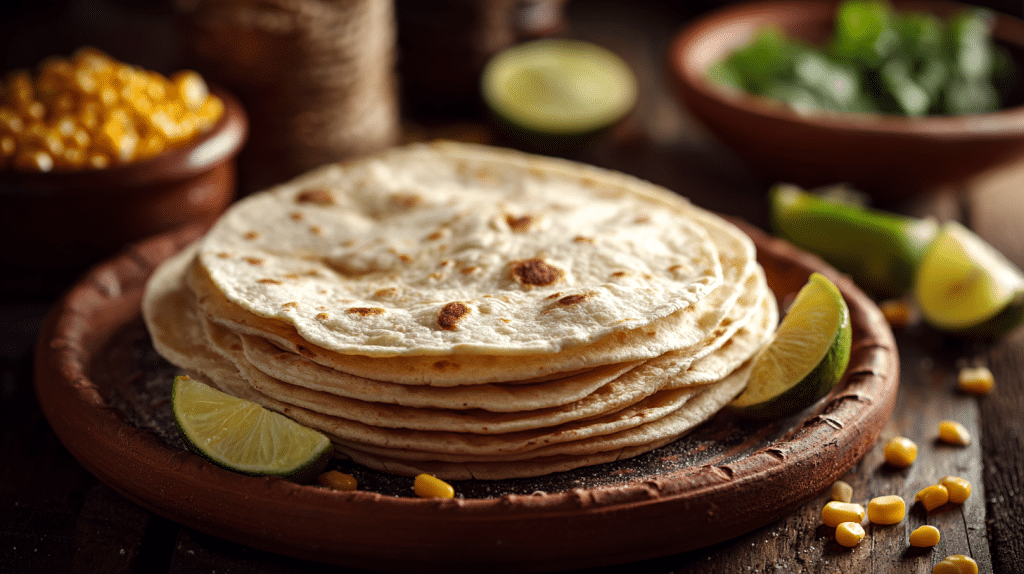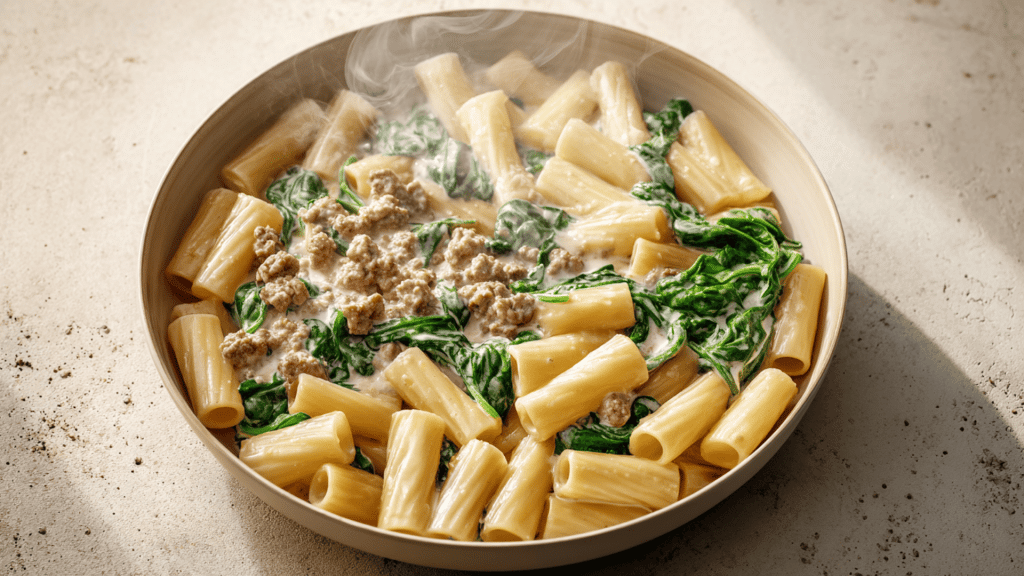Many people following low-carb diets find themselves questioning which foods fit their nutritional goals, especially when it comes to beloved staples like tortillas.
Corn tortillas have gained popularity beyond their traditional Latin American roots, appearing in kitchens worldwide as people seek gluten-free and potentially lower-carb alternatives to wheat-based products.
Understanding the exact carbohydrate content of corn tortillas becomes crucial for anyone managing weight, blood sugar levels, or following specific dietary plans like keto or diabetes management protocols.
This comprehensive guide examines the precise carbohydrate content of corn tortillas, compares them to other options, and provides practical guidance on incorporating them into various healthy eating approaches that support your specific wellness goals.
What Are Corn Tortillas Made Of?

Corn tortillas contain surprisingly few ingredients, making them a relatively simple and natural food choice.
Traditional corn tortillas consist primarily of corn masa flour and water, with some commercial varieties containing minimal additives like salt or lime for flavor enhancement and preservation.
The key ingredient, masa flour, undergoes a traditional process called nixtamalization, where corn kernels are treated with lime water before grinding.
The process also creates the distinctive flavor and pliable texture that makes corn tortillas suitable for wrapping and folding.
Most commercial corn tortillas contain only three to four ingredients, making them significantly less processed than many bread alternatives.
This simplicity contributes to their appeal among health-conscious consumers seeking whole food options with recognizable ingredients.
Carbohydrate and Other Nutritional Content in Corn Tortillas
The nutritional content varies significantly between small and medium-sized tortillas, making portion awareness crucial for meal planning.
Small corn tortillas (6-inch diameter) provide 52 calories, with 10.7 grams of total carbohydrates and 1.4 grams of fiber, resulting in 9.3 grams of net carbohydrates. They deliver 1.4 grams of protein and 0.7 grams of total fat.
Medium tortillas (7-8 inches in diameter) contain 96 calories, with 19.8 grams of total carbohydrates and 2.8 grams of fiber, resulting in 17.0 grams of net carbohydrates.
These larger tortillas provide 2.5 grams of protein and 1.1 grams of total fat.
The fiber content in corn tortillas, although modest compared to whole-grain breads, offers digestive benefits and helps slow the absorption of carbohydrates into the bloodstream.
Net carbohydrates represent total carbohydrates minus fiber content, providing a more accurate picture of the blood sugar impact and low-carb diet planning.
Are Corn Tortillas Low Carb?
Corn tortillas fall into a moderate carbohydrate category rather than being truly low-carb foods.
With 10-18 grams of carbs per tortilla, they exceed the strict limits of ketogenic diets, which typically restrict carbs to 20-30 grams per day total.
For people following moderate low-carb approaches or managing diabetes, corn tortillas can fit into daily carb budgets when consumed mindfully.
A single small corn tortilla represents roughly 10-12 grams of a 50-100-gram daily carb target, leaving room for vegetables and other nutrient-dense carb sources.
Individuals on very strict low-carb or ketogenic eating plans may need to avoid or severely limit corn tortillas to maintain ketosis.
However, those following more flexible approaches like controlled-carb or diabetic meal plans can often include them as part of balanced meals.
Keto-Friendly Tortilla Alternatives Compared to Corn Tortillas

For those following ketogenic or very low-carb diets, corn tortillas may exceed daily carbohydrate limits. Fortunately, several alternatives provide the tortilla experience while dramatically reducing carb content. Understanding how these options compare nutritionally helps make informed choices based on dietary goals and taste preferences.
1. Almond Flour Tortillas
Almond flour tortillas offer a nutty flavor with significantly lower carbohydrates than corn tortillas.
Made primarily from blanched almond flour, eggs, and psyllium husk, these alternatives provide healthy fats and moderate protein while maintaining flexibility for wrapping.
| Nutrient | Almond Flour Tortilla |
|---|---|
| Calories | 89 |
| Total Carbs | 4.2g |
| Net Carbs | 2.1g |
| Protein | 3.8g |
| Fat | 7.1g |
2. Coconut Flour Tortillas
Coconut flour tortillas provide tropical flavor notes while remaining ketogenic-friendly.
The high fiber content of coconut flour creates a satisfying texture while keeping net carbohydrates minimal. These tortillas work particularly well for sweet applications or tropical-inspired fillings.
| Nutrient | Coconut Flour Tortilla |
|---|---|
| Calories | 67 |
| Total Carbs | 5.8g |
| Net Carbs | 1.9g |
| Protein | 2.3g |
| Fat | 4.2g |
3. Cauliflower Tortillas
Cauliflower tortillas represent the lowest-carb option, made from cauliflower rice, eggs, and cheese.
These vegetable-based alternatives provide additional vitamins and minerals while maintaining extremely low carbohydrate content suitable for strict ketogenic approaches.
| Nutrient | Cauliflower Tortilla |
|---|---|
| Calories | 35 |
| Total Carbs | 2.8g |
| Net Carbs | 1.4g |
| Protein | 2.8g |
| Fat | 1.9g |
4. Cheese-Based Tortillas
Cheese tortillas, made from melted and cooled cheese, provide zero carbohydrates while offering high protein and fat content.
These options work best for savory applications and provide the most dramatic carbohydrate reduction compared to traditional corn tortillas.
| Nutrient | Cheese Tortilla |
|---|---|
| Calories | 78 |
| Total Carbs | 0.2g |
| Net Carbs | 0.2g |
| Protein | 6.8g |
| Fat | 5.9g |
Additional Nutritional Benefits of Corn Tortillas
Beyond carbohydrate considerations, corn tortillas provide several important nutrients that support overall health.
They contain magnesium, which supports muscle and nerve function, and calcium from the nixtamalization process, contributing to bone health.
B vitamins, particularly niacin and folate, become more available through the lime treatment used in traditional masa preparation.
These nutrients support energy metabolism and cellular function throughout the body. Corn tortillas also provide small amounts of iron and zinc, essential minerals for immune function and oxygen transport.
This makes them valuable alternatives in restricted diets while maintaining cultural food traditions.
Tips for Including Corn Tortillas in a Healthy Diet
Incorporating corn tortillas into a balanced eating plan requires strategic portion control and thoughtful meal composition. These practical strategies help maximize nutrition while managing carbohydrate intake effectively.
- Choose smaller sizes: Opt for 6-inch tortillas over larger varieties to reduce carbohydrate load while maintaining satisfaction and flavor experience.
- Combine with protein: Pair tortillas with lean proteins like grilled chicken, fish, or beans to slow carbohydrate absorption and increase meal satisfaction.
- Add healthy fats: Include avocado, nuts, or olive oil-based dressings to further moderate blood sugar response and enhance nutrient absorption.
- Load with vegetables: Fill tortillas primarily with non-starchy vegetables like peppers, onions, lettuce, and tomatoes to increase fiber and nutrient density.
- Read ingredient labels: Select brands with minimal additives and avoid varieties containing unnecessary preservatives or artificial ingredients.
Strategic meal planning and mindful preparation techniques allow corn tortillas to fit into most healthy eating patterns while supporting individual nutrition goals.
Conclusion
Corn tortillas contain moderate levels of carbohydrates, with small varieties providing 10-12 grams and medium sizes offering 15-18 grams of total carbs per tortilla.
While not strictly low-carb foods, they can fit into many healthy eating approaches when consumed thoughtfully and combined with nutrient-dense ingredients.
Their gluten-free nature, minimal processing, and cultural significance make them valuable additions to diverse dietary patterns.
By understanding their carbohydrate content and practicing portion control, most people can enjoy corn tortillas as part of a balanced, health-supporting meal plan that aligns with their individual nutrition goals and preferences.


























